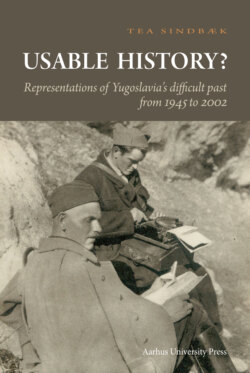Читать книгу Usable History? - Tia Sindbaek - Страница 8
На сайте Литреса книга снята с продажи.
Genocide, term and theme
ОглавлениеGenocide represents the ultimate threat, that of extinction, against an ethnic or national group. When in 1944 the Polish-Jewish lawyer Rafael Lemkin coined the term genocide, he saw it as directed “against the national group as an entity” and against individuals “as members of the national group”. Later, the United Nations genocide convention of 1948 defined the possible victims of genocide as members of “national, ethnical, racial or religious groups”.20 Founded in a national perspective on history, the term ‘genocide’ does not correlate easily with a communist class-based historiography. A history of genocide will also have to be, at least partly, a victim-centred and civil history, rather than one of military feats, class struggles and economic progress.
Though discussed by the United Nations prior to the genocide resolution of 1946 and the convention of 1948, the term genocide was not widely used in the first decades after its creation. It probably did not enter more common vocabularies before the 1970s.
Studies of the history and public commemoration of the Second World War and the Holocaust, seen by many as the archetype of genocide, have shown that during the first decades after the war neither historians nor the general public showed any great interest in massacres, victims and genocide.21 In general the technical and political aspects of the war, and the ‘national suffering’ of states under Nazi-occupation were much more in focus. With the aim of reconstructing depraved and fractured national communities after a devastating war, most European nation-states created positive narratives of united and heroic national resistance against external axis enemies.22
In Israel, where memory of the war and its victims would indeed be pressing, the Holocaust was largely absent from history and other scholarly fields until the early 1960s, when the Eichman trial brought this history into focus.23 In Western Europe and North America, the Holocaust stayed out of focus for even longer. In the United States the Holocaust was hardly identified as a particular tragedy until the end of the 1960s, and public interest rose markedly from the late 1970s.24 The historiographies of the countries of the East European socialist bloc followed a line of communist ‘anti-fascism’, having as its important themes the heroic struggles of the Partisans, the people’s armies and the Red Army.25 The Nazi politics of genocide and its victims were almost entirely absent from these histories: in 1981, the historian Lucy S. Dawidowicz, while researching a book on the Holocaust, found reason to fear that “the history of the 6 million murdered Jews would vanish from the earth as they themselves and their civilization had vanished”.26
This has certainly not been the case. Concerning Holocaust research, it has been pointed out that as much material was published between 1985 and 1995 as had been published in the entire period from 1945 to 1985.27 As scholarly fields, Holocaust studies and Genocide studies have gained in strength since the 1970s and flourished since the early 1980s.28 In the last decades, research and memorial centres dedicated to the Holocaust and more generally to genocide have been established throughout the world. It seems plausible to conclude that since the end of the 1970s there has been an unseen historical – as well as a public and general academic – interest in atrocities, genocide, and victims across the world as well as in Yugoslavia.
There may be several reasons for this increased interest in genocide and victims. Perhaps there was a need for distance in time before these issues could be addressed.29 Other causes may lie in a widespread change in world view and perspectives on individuals in relation to institutional and stately structures. The anti-war movements of the 1970s, the rise of individual human rights and the end of the Cold War have shifted the points of identification within historical culture, at least partly, from states and military power to civil and individual human beings.
